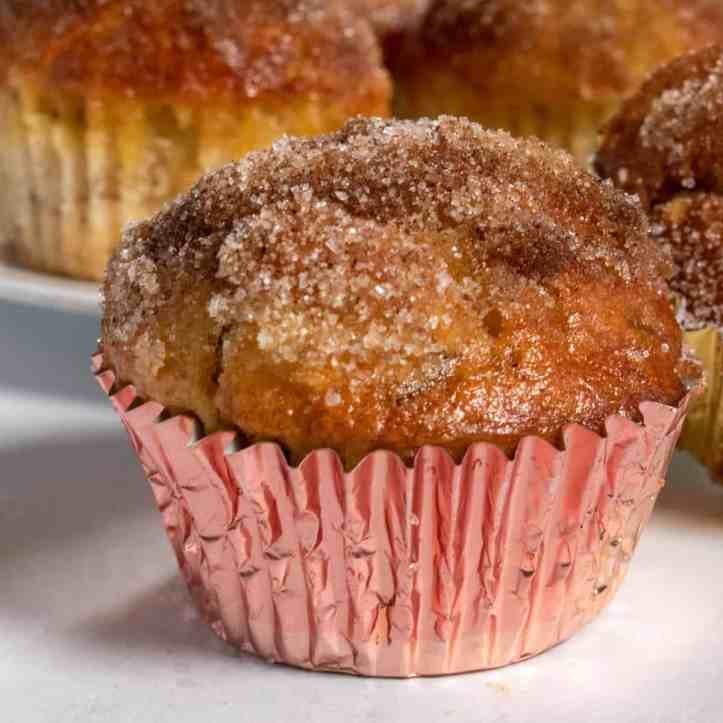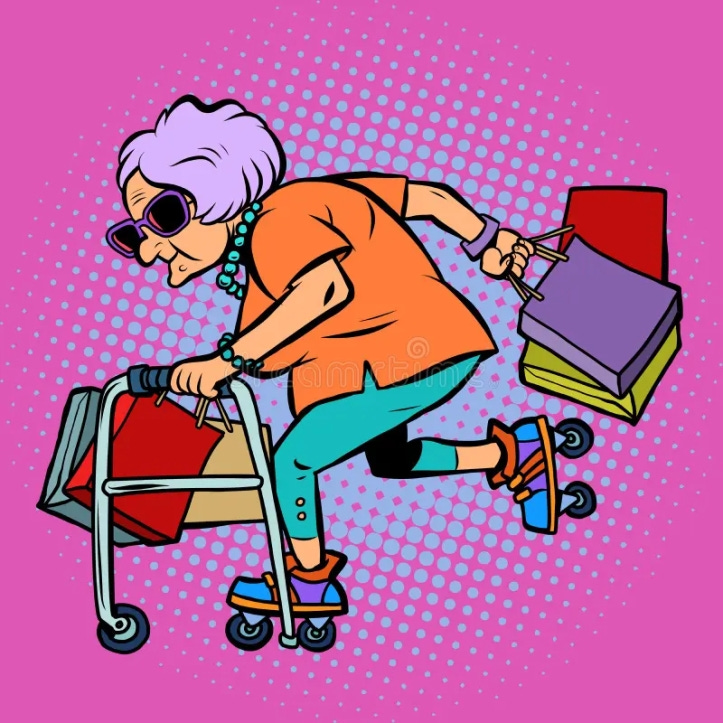Caring Professions?
At my local café, I bought a cinnamon muffin. I tried to balance it on the seat of my rollator (which is like a walker with wheels) to carry it to the small table less than two metres away. I use the rollator because i have a serious back condition (from 47 years ago) which has gotten worse. Suddenly, the muffin slipped off the plate and fell face down on the floor.
Maybe the 30 second rule will kick in — if the muffin’s on the floor 30 seconds or less, it’s still okay to eat. If I could scoop it up from the floor, it would be good as new. As I bent — with difficulty — to pick it up, I caught the eye of a thin, pretty woman with a dark pony tail. She was at a nearby table. She saw me, as did her woman companion – two friends out for a coffee on a great spring morning. They saw. But they must have thought “this doesn’t concern me” — or worse, “someone else will help.”
There I was trying to bend down, hanging on to the rollator, trying to get the muffin. Both women watched and continued to talk, loudly, about university and friends in common.
I managed to pop the muffin in my jacket pocket– its saucer in my other pocket — and return to my table. I was eating the muffin and drinking my cappuccino when the women at the other table got up to leave. As they neared the front door, I noticed they were wearing black hoodie jackets monographed with Dalhousie Faculty of Medicine. They could have been doctors, or medical students, or physical or occupational therapists. They could have been in nursing school – hell maybe they were professors. But neither woman had gotten out of her chair to help a disabled customer pick up something.
These are members of the helping professions, are they not?
Youth on buses have offered me their seats. Skate-boarders have carried groceries for me. Cab drivers have picked up my dropped crutches. Almost everyone opens doors without being asked. Yet these two women who will be professional carers – doctors, nurses, therapists – one day (and they may be now) showed not an ounce of interest or generosity. It was not a negative act of omission, but an act of commission — “this doesn’t concern me”.
What does it mean for doctors in particular – to avoid people in trouble (even minor trouble) who are not patients in a clinical setting. What does it show others, when students or practitioners in the “caring professions” avoid getting involved in helping, even in a small way. Almost 40% of Nova Scotians (37.9%) identify as having one or more disabilities. Among those over age 65, nearly 50% (49.2%) have one or more disabilities. In Halifax, it’s hard to avoid the disabled and dismiss our small needs.
Hippocratic Oath: as essential to a doctor’s identity as a doctor of medicine degree
At Dalhousie, as at most Canadian medical schools, students have to swear the Hippocratic Oath as they enter medical school and when they graduate as doctors. At the 2022 Dalhousie medical school convocation ceremony, Dr Heather Barrett asked all the graduating students to take the oath as a guide of conduct for doctors, that heralds “service to patients, learners and society.” Dr Barrett noted this “declaration is as essential to their identity as physicians as the doctor of medicine degree they receive today.” Many readers recall the oath’s admonishment to “first do no harm” to patients. But where does the oath discourage service, or deter someone from doing a simple courtesy for someone who is outside the clinical setting.
Image at the top: Young woman with her head in the clouds, by Robin Treadwell/Science Photo Library.
Share this:
Related
Jen Powley, author and activist, receives 2019 James McGregor Stewart AwardJune 28, 2019
On the hustings: Rankin does his best to ignore demands of physically disabled in NSAugust 9, 2021In "Canada"
Where will the Severely Physically Disabled Live?February 25, 2019
Post navigation
Leave a comment
Write a comment...






